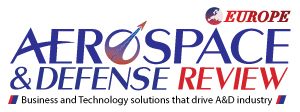The aviation industry in Europe is undergoing a transformative phase marked by rapid technological innovation, evolving regulatory frameworks, and a heightened emphasis on sustainability. Amid these changes, aviation consulting services have emerged as critical enablers, offering specialized expertise that helps stakeholders navigate complex operational, financial, and strategic challenges. These consulting services provide essential guidance across various domains, including environmental compliance, digital transformation, safety management, and market strategy.
Trends Impacting the Aviation Consulting Sector
Several key trends are reshaping the aviation consulting landscape in Europe. One of the most significant trends is the focus on sustainability. The effort to reduce carbon emissions and adopt sustainable practices is a growing priority for aviation businesses, spurred by regulatory pressures and public demand for more environmentally responsible operations. Consultants are helping airlines and airports develop strategies to lower their environmental footprint by adopting sustainable aviation fuels, energy-efficient technologies, and improved waste management practices. These sustainability initiatives are necessary for compliance and contribute to long-term cost savings and enhanced corporate reputation.
Stay ahead of the industry with exclusive feature stories on the top companies, expert insights and the latest news delivered straight to your inbox. Subscribe today.
Data analytics and artificial intelligence (AI) are transforming the aviation industry by providing insights into operational efficiency, route optimization, and customer service improvements. These technologies streamline maintenance processes and enhance predictive capabilities, leading to better safety standards and reduced downtime. Consultants help businesses adopt digital solutions effectively while minimizing disruptions.
The aviation sector is also embracing digital transformation through technologies like blockchain, biometrics, and cloud computing to improve efficiency, security, and passenger experiences. Consultants guide organizations in strategic planning, technology integration, and cybersecurity, ensuring these innovations align with their goals.
Overcoming Key Challenges in the Aviation Industry
European aviation businesses face numerous challenges, and consultants are pivotal in helping them find practical solutions. One of the most pressing challenges is the evolving regulatory environment. Strict regulations govern the aviation industry, and changes in safety standards, security measures, and environmental regulations require constant adaptation. Consultants play a crucial role in helping businesses stay compliant with these regulations. They provide advisory services on policy changes, assist in meeting compliance standards, and ensure organizations avoid potential fines and disruptions. By offering proactive solutions, consultants help businesses stay ahead of regulatory requirements and maintain operational continuity.
Another significant challenge is the pressure to reduce operational costs while maintaining high service standards. Airlines and airports must find innovative ways to optimize processes, streamline operations, and manage costs effectively. Consultants are instrumental in identifying efficiency improvement opportunities, such as process reengineering, technology adoption, and workforce optimization. They also advise on strategic collaborations and mergers, which can assist organizations in achieving economies of scale and accessing new markets, thus strengthening their competitive positions in the market.
Security and safety are also critical concerns for the aviation industry, particularly in light of evolving global threats. Consultants are addressing this challenge by helping aviation businesses implement robust safety management systems, conduct safety audits, and integrate advanced security technologies. These solutions ensure that organizations comply with the highest safety and security standards, ultimately maintaining the industry’s reputation for being one of the safest modes of transportation.
Exploring Opportunities and Innovations in Aviation
Technological advancements are transforming the aviation sector, creating significant opportunities for stakeholders. One key development is using digital twins and simulation technologies, which allow businesses to create virtual replicas of their operations to optimize maintenance schedules and resource allocation. Consultants offer guidance on integrating these tools, helping organizations reduce costs and improve efficiency. As digital twins become more common, they enable businesses to foresee potential issues and enhance their operations.
Electric and hybrid aircraft present a significant opportunity for the aviation sector as airlines aim to reduce their environmental impact and operational costs. Consultants are essential in guiding businesses through the transition, offering expertise in fleet management, regulatory compliance, and technology readiness. This shift benefits the environment and enhances airlines’ financial sustainability.
Additionally, the rise of unmanned aerial vehicles (UAVs) and drones offers new possibilities for the industry. Consultants support companies in adopting these technologies for cargo transport, infrastructure inspections, and surveillance, leading to cost savings and improved safety. By ensuring regulatory compliance and facilitating airspace integration, consultants help unlock innovation and growth in this area.
The development of autonomous aircraft and air taxis creates new business opportunities in urban mobility. Consultants actively advise on these technologies’ operational, regulatory, and infrastructure challenges. As air taxis promise to revolutionize urban transportation, consultants are helping businesses assess market demand, ensure compliance with evolving regulations, and plan for the necessary infrastructure to support these new forms of air travel. The potential for growth in this sector is substantial, offering exciting opportunities for innovation and investment in the aviation industry.




